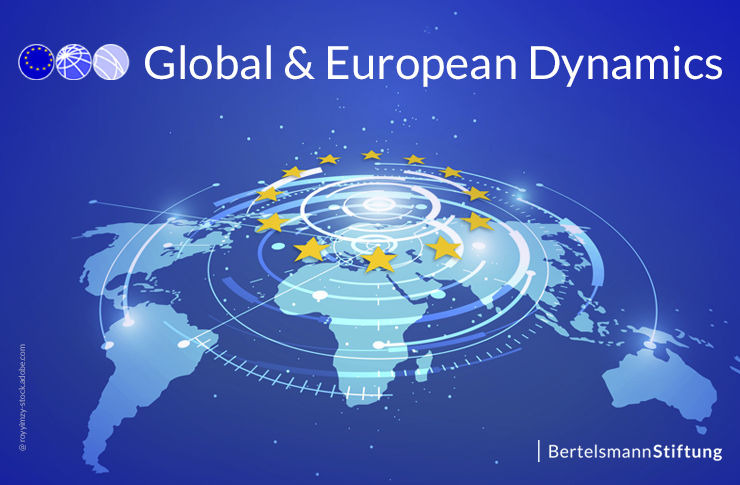
|
February 2023
Dear Readers,
Our second edition of GED Monthly centres around this year’s Munich Security Conference (MSC), which brought together the world’s decision-makers in the field of security, and coincided with the anniversary of the war against Ukraine. Working with our friends and partners, Bertelsmann Stiftung’s team of experts contributed to the conference by hosting discussions and by presenting new research on managing interdependence and on public opinion regarding Europe’s defence of Ukraine.
First, our U.S.-German Futures Forum offered up a panel discussion on the identification, mitigation and prevention of potentially cataclysmic security threats. It featured opening remarks from Kemba Walden (Principal Deputy National Cyber Director, White House) and Regine Grienberger, (Cyber Ambassador, Federal Foreign Office). Panelists included David Van Weel (Assistant Secretary General for Emerging Security Challenges, NATO) and Phil Venables (Chief Information Security Officer and Vice President, Google).
We also presented our new study, produced with the Vienna Institute for International Economic Studies (wiiw), entitled: “Keeping friends closer: Why the EU should address new geoeconomic realities and get its neighbours back in the fold.” The study measures the interconnectivity between the European Union and its neighbouring countries and compares these interconnections with those of the EU’s peers and rival, the US, China, and Russia.
Finally, we hosted a conversation between Anne Applebaum (Journalist & Historian), Timothy Garton Ash (Professor of European Studies, University of Oxford) and Michael Thumann (Foreign Policy Correspondent in Moscow & Berlin, Die ZEIT) on how nostalgia is used as a powerful political tool. The conversation drew on new data and analysis from our polling platform, eupinions.
Below, we offer further information and links for both new reports.
We also include three further articles produced by our experts on the theme of European security. They focus on the EU’s role in reconstructing and integrating Ukraine after the conflict, on the impact of sanctions placed on Russia and on Germany’s progress in implementing the Zeitenwende.
In light of the anniversary of the war, we would like to draw your attention to the compiled analysis of Bertelsmann Stiftung’s expertise on the subject, the link to which you will find at the very end of this newsletter.
With warm wishes,
Stephan Vopel and Malte Zabel
Director and Co-Director
Europe’s Future Program
|
|
|
|
|
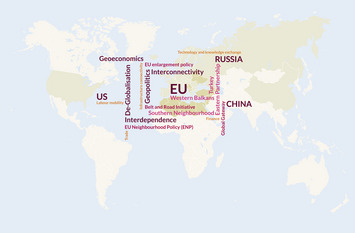
Keeping friends closer: The EU and new geoeconomic realities
Russia’s invasion of Ukraine has marked the start of a new geoeconomic era for the EU. The invasion has dramatically intensified the EU’s ongoing economic and financial decoupling from Russia, which started in 2014, and adds to existing challenges, which are now assuming added salience: global economic decoupling between the US and China, the climate emergency and increasing irregular migration. We set out how this could work in a new empirical study.
Read more
|
|
|
|
|
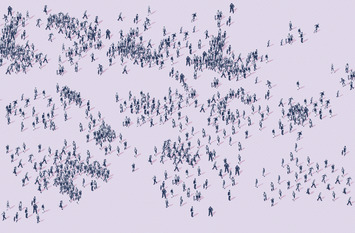
Anxious We Stand: Europeans Supportive of Ukraine
As winter settles across Europe, analysts and policymakers alike have sought signs of waning public support for Ukraine. Yet the latest eupinions data indicate that a year into the war, Europeans still remain broadly supportive of the Ukrainian cause. The survey, taken in December 2022, indicates that a majority of EU citizens believe that Ukraine will prevail over Russia – and that Russia’s war of aggression is ultimately an attack on the whole of Europe.
Read more
|
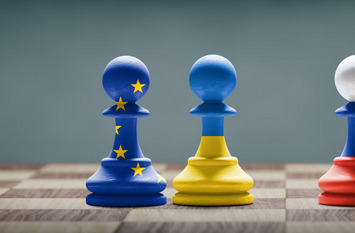
Ukraine’s Future: Recovery and EU Integration
In parallel with military support to defend itself against the Russian war of aggression, a forward-looking debate is needed on how the EU should respond to Ukraine’s liberation and emancipation from a strategic perspective. While the EU is not a global military actor, its status as an economic powerhouse is undisputed. We argue that the bloc should use this leverage more decisively in respect to its future enlargement policy.
Read more
|
|
|
|
|
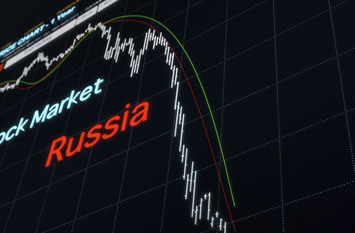
One Year of Sanctions Against Russia – Have They Worked?
In implementing financial sanctions against Russia, the EU and its international partners were speedy and bold. However, it took months before the real economy, especially the energy sector, followed suit. This was mainly due to political and economic self-interests. But when the decision was finally taken to impose energy sanctions, it was a decisive one. This was also due to the realisation that the financial actions alone had not had an excessive effect.
Read more
|
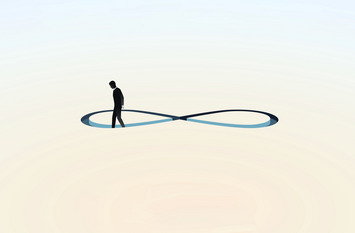
“Zeitenwende” One Year Later – Germany Caught in a Rut?
One year after Chancellor Olaf Scholz’s seminal speech in the German Bundestag, the country is still caught between conflicting instincts. The government needs to decide if it wants to embrace the “Zeitenwende” as something it actively pursues as a guiding principle for structural and long overdue changes or if it merely wants to interpret the term as a frame of reference for an altered environment to which one must, grudgingly, adapt.
Read more
|
|
|
|
|

Ukraine Special – Compilation of Bertelsmann Stiftung Analysis
On February 24, 2022, the Russian war of aggression against Ukraine began. It destroyed supposed certainties in Europe. Nothing can be taken for granted anymore, many things have to be completely reassessed and reclassified. The Bertelsmann Foundation wants to make its contribution to understanding the new era we find ourselves in. Here we summarize our expertise on the consequences of the Ukraine war for you.
Read more
|
|
|
|
|
In the next edition
|
|
|
|
We will look, among other things, at public procurement as a strategic tool for European economic policy and at the role of institutions in Europe’s ongoing reform of its regional development/cohesion strategy.
To keep abreast of our work, please keep an eye on our blog: globaleurope.eu
Or follow us on social media: http://twitter.com/GED_Tweet
|
|
|
|
|
|
|
|
|
|
|
|